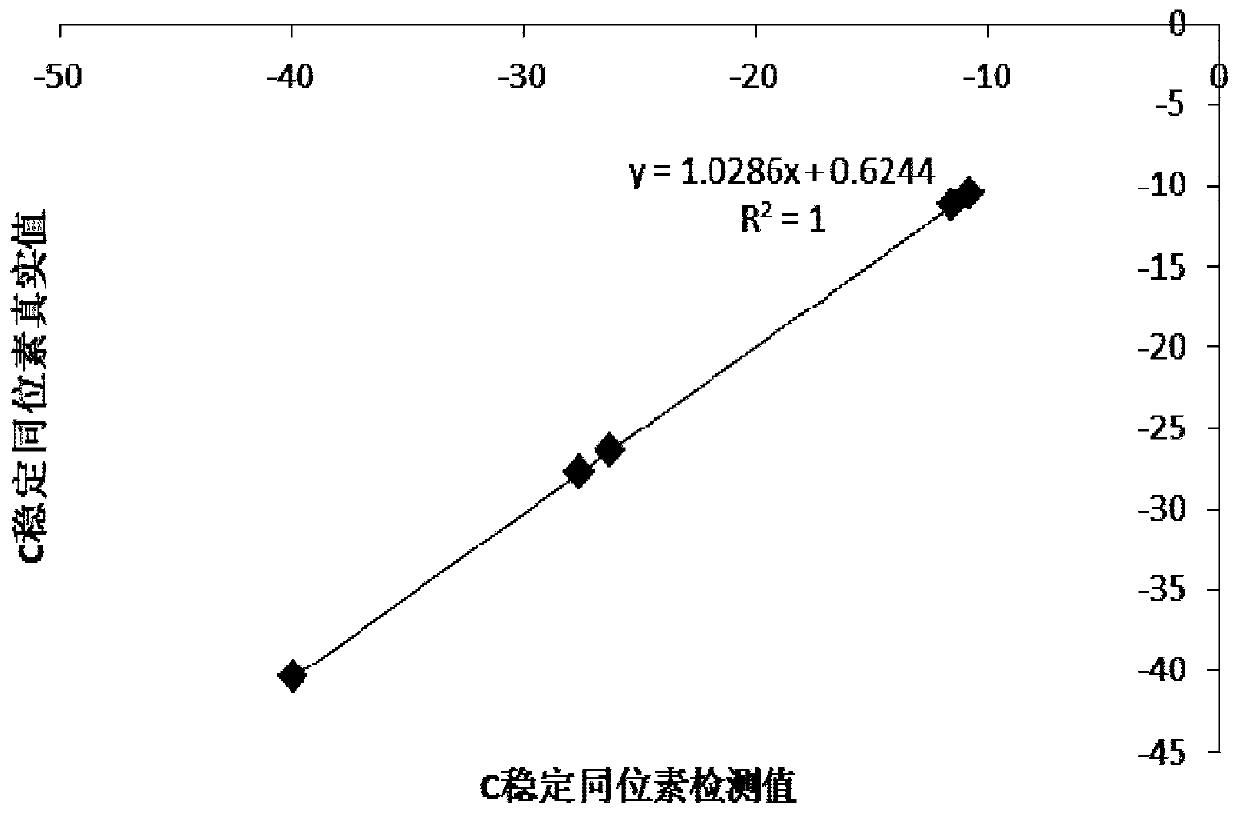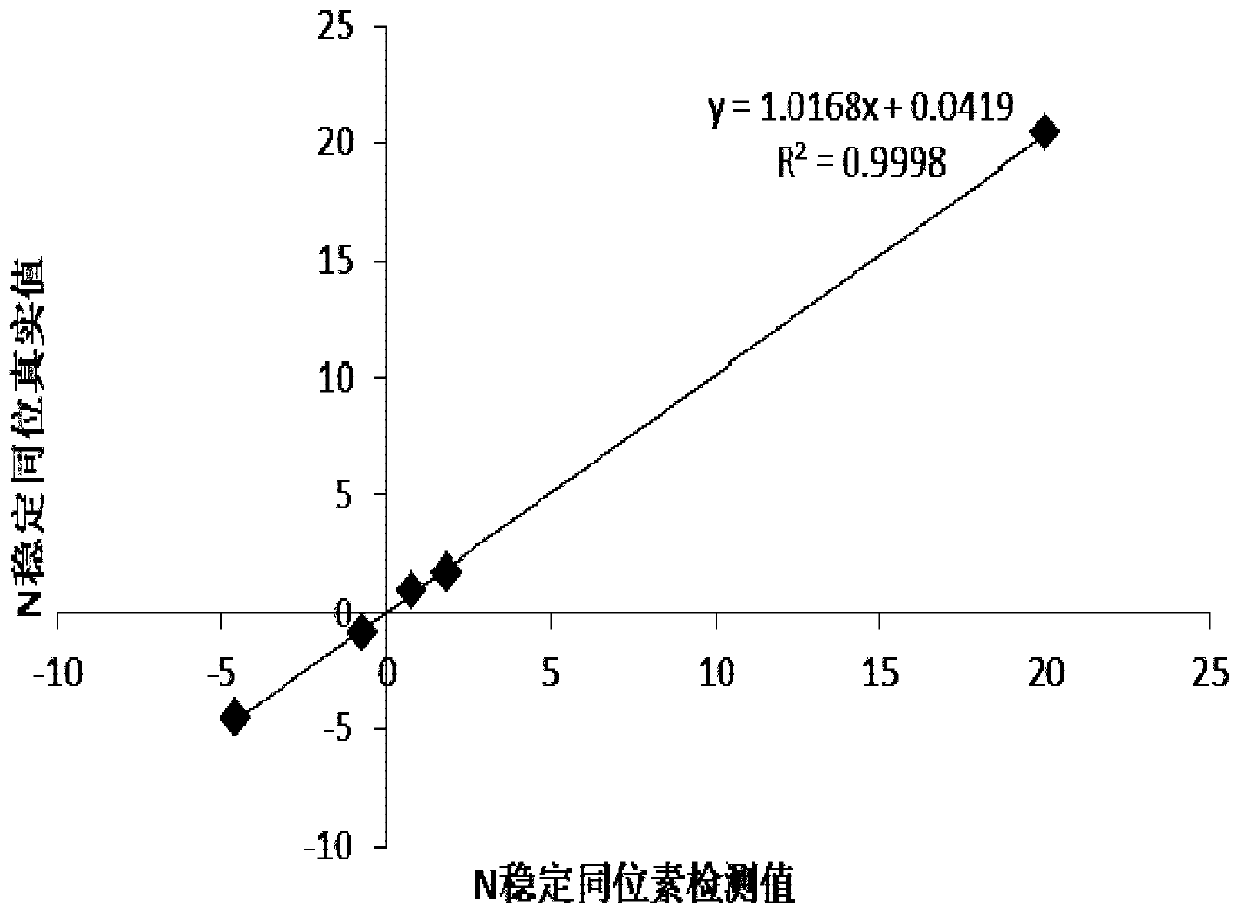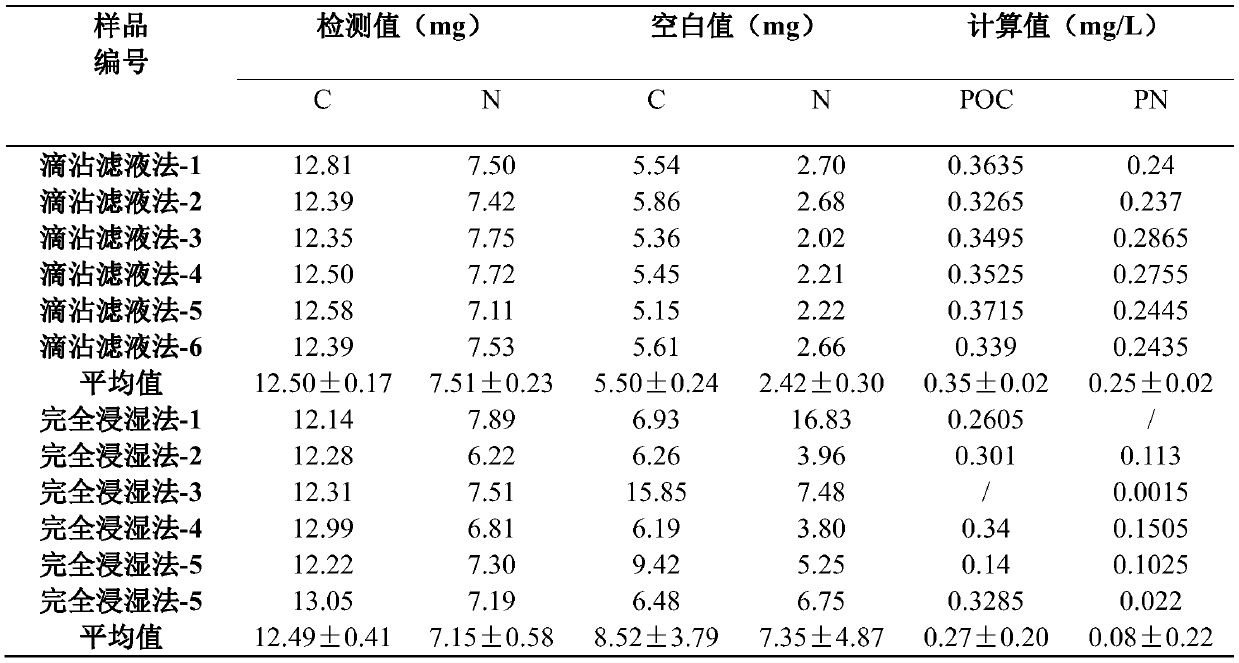A Method for the Analysis of Particulate Organic Carbon and Nitrogen Stable Isotopes in Seawater Using EA-IRMS
A granular organic carbon and isotope technology, which is applied in the direction of chemical analysis by means of combustion, analysis materials, preparation of test samples, etc., can solve problems such as the inability to separate the granular state and the dissolved state, achieve reuse, improve service life, The effect of improving accuracy
- Summary
- Abstract
- Description
- Claims
- Application Information
AI Technical Summary
Problems solved by technology
Method used
Image
Examples
Embodiment 1
[0024] In this embodiment, a large number of exploratory experiments on the influence of temperature on the data results and the bursting of the combustion tube were carried out, and the temperature setting of the technical solution of the present invention was finally obtained to be 700°C. During the experiment, it was found that when the temperature is lower than 700 °C, incomplete combustion will occur, and the standard curve will have poor linearity. After the subsequent inserted standard is brought into the standard curve, the correction factor will also appear In the case of large cases, we believe that the working temperature of the instrument should not be lower than 700°C. It should be noted that at 700°C, it is best to set the oxygen addition time of the instrument for 10 seconds to ensure complete combustion. When the temperature is higher than 700°C, it is found through statistics that the probability of cracking or bursting of the combustion tube at 850°C is the sa...
Embodiment 2
[0026]In this embodiment, a groping experiment was carried out on the influence of the amount of oxygen added on the data results, and finally the temperature setting of the technical solution of the present invention was set to 700°C. When this embodiment tests the oxygen addition amount of the instrument, when the conventional oxygen addition amount of the instrument is 70s, at a temperature of 700 degrees, the conversion rates of standard C and N are respectively 99.1% and 99.2%; after changing the oxygen addition amount to 80s, At 700°C, the conversion rates of standard C and N are 100.2% and 99.6%, so after the temperature is set to 700°C, it is best to increase the amount of oxygen added for 10 seconds to ensure that the sample is fully combusted.
Embodiment 3
[0028] 1. Materials and methods
[0029] 1.1 Materials
[0030] 1.1.1 Membrane
[0031] On June 2, 2019, a φ25mm GF / F glass fiber filter membrane was prepared in the laboratory. After burning in a muffle furnace at 450°C for 5 hours, it was taken out and placed in an electronic moisture-proof box to cool down for later use.
[0032] 1.1.2 Water sample
[0033] On June 4, 2019, surface and bottom seawater samples were collected in the breeding sea area of Dongchu Island Aquatic Products Co., Ltd., Rongcheng City, Shandong Province, and were immediately filtered after being transported back to the laboratory.
[0034] 1.2 Method
[0035] 1.2.1 Collection of samples
PUM
 Login to View More
Login to View More Abstract
Description
Claims
Application Information
 Login to View More
Login to View More - R&D
- Intellectual Property
- Life Sciences
- Materials
- Tech Scout
- Unparalleled Data Quality
- Higher Quality Content
- 60% Fewer Hallucinations
Browse by: Latest US Patents, China's latest patents, Technical Efficacy Thesaurus, Application Domain, Technology Topic, Popular Technical Reports.
© 2025 PatSnap. All rights reserved.Legal|Privacy policy|Modern Slavery Act Transparency Statement|Sitemap|About US| Contact US: help@patsnap.com



